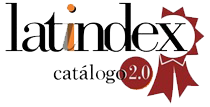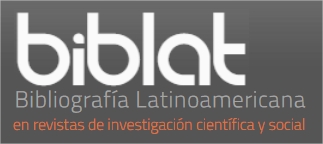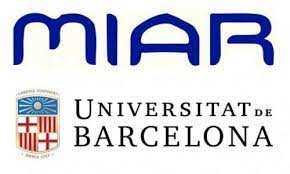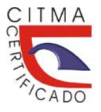Self-perception of Leadership Behaviors in a Military Higher Education Institution: A Study at the University of the Armed Forces-ESPE
DOI:
https://doi.org/10.5281/zenodo.14804300%20Keywords:
leadership behaviors, CONLID-A questionnaire, university managers, military educational contextAbstract
Introduction: leadership in military higher education institutions, such as the University of the Armed Forces (UFA-ESPE), plays a fundamental role in their academic management and organizational development. Objective: to analyze how the directors of UFA-ESPE perceive their leadership in the dimensions of tasks, relationships, and change, and its implications in a military educational environment. Method: a descriptive quantitative approach was employed with a sample of 70 directors. Data collection was carried out using the CONLID-A questionnaire, evaluating reliability with the Cronbach's Alpha coefficient. Results: the directors show a positive perception of their leadership, with relationship-oriented behaviors (mean of 4.33) standing out, followed by task-oriented (4.26) and change-oriented (4.20) behaviors, reflecting a balance between operational efficiency and the promotion of interpersonal relationships in the military environment. Conclusion: the findings suggest that the directors of UFA-ESPE perceive effective leadership in the three key dimensions. In the context of military educational institutions, these behaviors are essential to maintain cohesion and adapt to changes, highlighting the importance of training programs that promote comprehensive and balanced leadership.
Downloads
References
Ahmad, B., Shafique, I., Qammar, A., Ercek, M., & Kalyar, M. N. (2024). Prompting green product and process innovation: examining the effects of green transformational leadership and dynamic capabilities. Technology Analysis & Strategic Management, 36(6), 1111-1123. https://doi.org/10.1080/09537325.2022.2071692
Amador Ortíz, C. M. (2018). Ventajas del liderazgo distribuido en instituciones de educación superior / Advantages of distributed leadership in institutions of higher education. RIDE Revista Iberoamericana Para La Investigación y El Desarrollo Educativo, 8(15), 817–832. https://doi.org/10.23913/ride.v8i15.322
Anwar, S., & Saraih, U. N. (2024). Digital leadership in the digital era of education: enhancing knowledge sharing and emotional intelligence. International Journal of Educational Management, 38(6), 1581–1611. https://doi.org/https://doi.org/10.1108/IJEM-11-2023-0540
Ascón Villa, J. E., García González, M., & Pedraza Dubernal, C. I. (2018). Las habilidades directivas en las instituciones de educación superior. Diseño estratégico con enfoque de liderazgo. REVISTA CIENTÍFICA ECOCIENCIA, 5(2), 1–14. https://doi.org/10.21855/ecociencia.52.61
Assoratgoon, W., & Kantabutra, S. (2023). Toward a sustainability organizational culture model. Journal of Cleaner Production, 400, 136666. https://doi.org/10.1016/j.jclepro.2023.136666
Bass, B. M., & Avolio, B. J. (1994). Improving organizational effectiveness through transformational leadership. In Improving organizational effectiveness through transformational leadership. Sage Publications, Inc.
Bourque, J., Doucet, D., LeBlanc, J., Dupuis, J., & Nadeau, J. (2020). L’alpha de Cronbach est l’un des pires estimateurs de la consistance interne : une étude de simulation. Revue Des Sciences de l’éducation, 45(2), 78–99. https://doi.org/10.7202/1067534ar
Calderón Arregui, D. A. (2023). Estilos de liderazgo y clima organizacional: un estudio correlacional en la Escuela de Ingeniería Militar “Gral. Guillermo Rodríguez Lara.” Killkana Social, 7(1), 53–68. https://doi.org/10.26871/killkanasocial.v7i1.1057
Calderón Arregui, D. A., Godoy, M., & Marrero, A. (2023). Validating a leadership style scale in a military higher education institution : Im- plications for research and practice Validación de una escala de estilos de liderazgo. Revista Killkana Sociales, 7(3), 61–76. https://doi.org/10.26871/killkanasocial.v7i3.1423
Calderón Arregui, D. A., Godoy Mena, M. J., & Marrero, A. (2023). Liderazgo y clima organizacional en la educación superior militar: Enfoque sociológico, avances sobre un estudio correlacional en la Universidad de las Fuerzas Armadas-ESPE. Revista de Seguridad y Defensa, 08(1), 11–24. https://doi.org/10.24133/RCSD.VOL08.N01.2023.01
Calderón Arregui, D. A., Godoy Mena, M. J., & Marrero Fernández, A. (2023). Validation of an organizational climate scale in a military higher education institution : implications foR. Chakiñan, Revista De Ciencias Sociales Y Humanidades, 22, 128–144. https://doi.org/https://doi.org/10.37135/chk.002.22.08
Calderón Arregui, D. A., & Sánchez Gordon, W. H. (2023). El Camino hacia el Liderazgo Militar de Excelencia: Estrategias para formar Líderes Efectivos en la Escuela Superior Militar “Eloy Alfaro.” Revista de Ciencias de Seguridad y Defensa, 08(3), 27–44. https://doi.org/10.24133/RCSD.VOL08.N03.2023.02
Cardeño Portela, N., Cardeño Portela, E. J., & Bonilla Blanchar, E. (2023). TIC y transformación académica en las universidades. Región Científica, 2(2), 202370. https://doi.org/10.58763/rc202370
Castro Solano, A., Lupano, M., Benatuil, D., & Nader, M. (2007). Teoría y Evaluación del Liderazgo. Paidos. https://acortar.link/RM308X
Chatterjee, S., Chaudhuri, R., Vrontis, D., & Giovando, G. (2023). Digital workplace and organization performance: Moderating role of digital leadership capability. Journal of Innovation & Knowledge, 8(1), 100334. https://doi.org/10.1016/j.jik.2023.100334
Demircioglu, M. A., & Chowdhury, F. (2021). Entrepreneurship in public organizations: the role of leadership behavior. Small Business Economics, 57(3), 1107–1123. https://doi.org/10.1007/s11187-020-00328-w
Fournier Guimbao, J. (2019). Competencias del líder militar futuro y nuevos instrumentos formativos para mejorarlas. In Cómo preparar el liderazgo militar futuro. Centro Superior de Estudios de la Defensa Nacional CESEDEN. http://www.ieee.es/Galerias/fichero/docs_trabajo/2020/DT05_Liderazgo.pdf
García-Guiu, C., & Pastor Álvarez, A. (2022). Liderazgo militar con «ñ»: aproximaciones científicas psicosociales en España. Documento Marco IEEE 02/2022, 1–23. https://www.ieee.es/Galerias/fichero/docs_marco/2022/DIEEEM02_2022_CARGAR_Liderazgo.pdf
Geraldo Campos, L. A., Mera Sánchez, A. R., & Rocha Perez, E. (2020). Importancia de los estilos de liderazgo: un abordaje de revisión teórica. Apuntes Universitarios, 10(4), 156–174. https://doi.org/10.17162/au.v10i4.501
Gómez Miranda, O. M. (2023). Factores institucionales que impactan en la actividad emprendedora de los estudiantes universitarios. Región Científica, 2(1), 202327. https://doi.org/10.58763/rc202327
Hemphill, J. K., & Coons, A. E. (1957). Development of the Leader Behavior Description Questionnaire”. In R. M. Stodgill and A. E. Coons (Eds.), Leader Behavior: Its Description and Measurement. Columbus, Ohio: Bureau of Business Research, Ohio State University, 6-38.
Hernández-Sampieri, R., & Mendoza, C. (2020). Metodología de la investigación: las rutas cuantitativa, cualitativa y mixta. McGraw Hill. https://acortar.link/DH3B4c
Huerta Riveros, P., & Muñoz Fritis, C. (2020). Calidad en instituciones de educación superior: Estudio exploratorio del liderazgo y la cultura académica/ Quality in higher education institutions: Exploratory study of leadership and academic culture. Revista de Ciencias Sociales, 433–449. https://doi.org/10.31876/rcs.v26i4.34672
Jiménez-Pitre, I., Molina-Bolívar, G., & Gámez Pitre, R. (2023). Visión sistémica del contexto educativo tecnológico en Latinoamérica. Región Científica, 2(1), 202358. https://doi.org/10.58763/rc202358
Lasso Quintero, M. I., Maya Duran, S. E., & Alvarado, O. (2019). El liderazgo: un desafío para las IES del departamento del Cauca. Espirales Revista Multidisciplinaria de Investigación, 3(31), 50–64. https://doi.org/10.31876/er.v3i31.692
Leso, B. H., Cortimiglia, M. N., & Ghezzi, A. (2023). The contribution of organizational culture, structure, and leadership factors in the digital transformation of SMEs: a mixed-methods approach. Cognition, Technology & Work, 25(1), 151-179. https://doi.org/10.1007/s10111-022-00714-2
Lupano Perugini, M. L., & Castro Solano, A. (2006). Estudios sobre el liderazgo. Teorías y evaluación. Psicodebate, 6(0), 107. https://doi.org/10.18682/pd.v6i0.444
Márquez Miramontes, B. L., & Chávez Villegas, A. (2021). El cumplimiento de las metas y la motivación del personal como detonantes de la competitividad en la educación superior. Academic Journal of Studies in Society Sciences and Technologies, 2(3), 1–13. http://cathi.uacj.mx/bitstream/handle/20.500.11961/19795/58-Article Text-181-1-10-20210901.pdf?sequence=1&isAllowed=y
McCauley, C. D., & Palus, C. J. (2021). Developing the theory and practice of leadership development: A relational view. The Leadership Quarterly, 32(5), 101456. https://doi.org/10.1016/j.leaqua.2020.101456
Medina Romero, M. Á., Hurtado Tiza, D. R., Muñoz Murillo, J. P., Ochoa Cervantez, D. O., & Izundegui Ordóñez, G. (2023). Método mixto de investigación: Cuantitativo y cualitativo. In Método mixto de investigación: Cuantitativo y cualitativo (Issue July). https://doi.org/10.35622/inudi.b.105
Moscoso Bernal, S. A., & Calderón Arregui, D. A. (2023). Universidad Glonacal: Retos, tendencias y propuesta de modelo de gestión. Revista Ciencias Pedagógicas e Innovación, 11(2), 39–57. https://doi.org/10.26423/rcpi.v11i2.692
Nader, M., & Castro Solano, A. (2009). Relación entre los estilos de liderazgo, valores y cultura organizacional: Un estudio con líderes civiles y militares. Anuario de Psicología, 40(2), 237–254. https://www.raco.cat/index.php/AnuarioPsicologia/article/view/143108
Northouse, P. G. (2021). Leadership: Theory and Practice (9th ed.). SAGE Publications. https://acortar.link/HgUISB
O’Connor, F. G., & Kearney, F. H. (2023). Leadership Lessons Learned from the Military. Clinics in Sports Medicine, 42(2), 301–315. https://doi.org/https://doi.org/10.1016/j.csm.2022.11.003
Paguay, F. W. (2021). Competencias de liderazgo asociadas a la gestión del clima laboral: caso Universidad Politécnica Estatal del Carchi. Espacios, 42(23), 38–51. https://doi.org/10.48082/espacios-a21v42n21p03
Pastor-Álvarez, A., Molero-Alonso, F., & Moriano-León, J. (2021). Influencia del liderazgo auténtico en el estado emocional de militares desplegados en operaciones en el exterior: estudio de la moral como variable mediadora. Sanidad Militar, 77(2), 73–80. https://doi.org/10.4321/s1887-85712021000200002
Pizarro Romero, K., & Martínez Mora, O. (2020). Análisis factorial exploratorio mediante el uso de las medidas de adecuación muestral kmo y esfericidad de bartlett para determinar factores principales. Journal Of Science and Research, 5, 21. https://revistas.utb.edu.ec/index.php/sr/article/view/1046
Polatcan, M. (2023). The Influence of Leadership Self-efficacy on College Students’ Leadership Practice: The Mediating Role of Motivation to Lead. International Journal of Educational Leadership and Management, 11(2), 138–166. https://doi.org/10.17583/ijelm.9551
Pooper, K. (1980). La lógica en la investigación científica. In Archivos de Cardiología de México (Vol. 86, Issue 2). https://doi.org/10.1016/j.acmx.2016.01.006
Rivera Gutiérrez, E., & Higuera Zimbrón, A. (2022). Aproximación al liderazgo educativo en instituciones de educación superior: Caso de estudio. Revista Internacional de Aprendizaje, 9(1), 11–23. https://doi.org/10.18848/2575-5544/CGP/v09i01/11-23
Robinson, V. M. J., Lloyd, C. A., & Rowe, K. J. (2016). El Impacto del Liderazgo en los Resultados de los Estudiantes: Un Análisis de los Efectos Diferenciales de los Tipos de Liderazgo. REICE. Revista Iberoamericana Sobre Calidad, Eficacia y Cambio En Educación, 12(4), 13–40. https://doi.org/10.15366/reice2014.12.4.001
Solano, G., Abebe, M. A., & Acharya, K. (2024). CEO military experience and corporate restructuring strategies. Journal of Business Research, 182, 114808. https://doi.org/https://doi.org/10.1016/j.jbusres.2024.114808
Srivastava, A. P., Shree, S., & Agarwal, S. (2021). Does authentic leadership develop inclusive classrooms: a model examination? International Journal of Educational Management, 36(4), 495–514. https://doi.org/https://doi.org/10.1108/IJEM-07-2020-0338
Stogdill, R. M., Goode, O. S., & Day, D. R. (1963). The leader behavior of corporation presidents. Personnel Psychology, 16(2), 127–132. https://doi.org/10.1111/j.1744-6570.1963.tb01261.x
Torres, L. L. (2022). School organizational culture and leadership: Theoretical trends and new analytical proposals. Education sciences, 12(4), 254. https://doi.org/10.3390/educsci12040254
Uhl-Bien, M. (2021). Complexity leadership and followership: Changed leadership in a changed world. Journal of Change Management, 21(2), 144-162. https://doi.org/10.1080/14697017.2021.1917490
Wagner, W. J., van Putten, S., & Rauscher, W. (2022). Professional military instructor identity in the South African National Defence Force. Scientia Militaria, 49(2). https://doi.org/10.5787/49-2-1246
Way, D. P., Nahata, L., Gerhardt, C., Martin, D. R., Carrau, R. L., & Satiani, B. (2024). Leadership Development and Its Association With Retention of Surgical Versus Nonsurgical Faculty at a Large Academic Health Center. Journal of Surgical Research, 303, 173–180. https://doi.org/https://doi.org/10.1016/j.jss.2024.09.011
Whyte, J., Naderpajouh, N., Clegg, S., Matous, P., Pollack, J., & Crawford, L. (2022). Project leadership: A research agenda for a changing world. Project Leadership and Society, 3, 100044. https://doi.org/10.1016/j.plas.2022.100044
Yukl, G. (2002). Leadership in Organizations. In U. Sadd (Ed.), Prentice Hall (5th Editio).
Downloads
Published
How to Cite
Issue
Section
License
Copyright (c) 2025 Estrategia y Gestión Universitaria

This work is licensed under a Creative Commons Attribution-NonCommercial-ShareAlike 4.0 International License.























